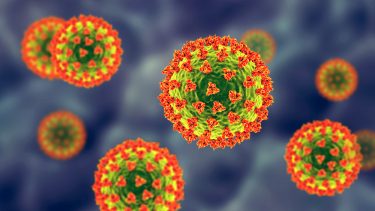AI platform developed to rapidly identify treatment regimens for infections, including COVID-19
Posted: 29 April 2020 | Victoria Rees (Drug Target Review) | No comments yet
A new AI tool has been created by researchers to identify the best treatment courses and doses for bacterial or viral infections, such as COVID-19.


Researchers aiming to rapidly find effective treatments to combat emerging bacterial and viral pathogens have developed a new artificial intelligence (AI) platform. According to the scientists, their Identifying Infectious Disease Combination Therapy with Artificial Intelligence (IDentif.AI) tool could help to reveal therapeutics to fight the COVID-19 coronavirus.
The researchers, from the National University of Singapore (NUS), highlight that traditionally, when bacterial and viral infections emerge, the response is to develop a treatment that combines several different drugs. However, this process is laborious and time-consuming, with drug combinations chosen sub-optimally and selection of dosage a matter of trial-and-error.
“If 10 or more drugs are examined, it is virtually impossible to study the effects of all the possible drug combinations and dosages needed to identify the best possible combination using traditional methods,” explained Professor Dean Ho, Director of The N.1 Institute for Health and Institute for Digital Medicine (WisDM) at NUS.
Reduce preclinical failures with smarter off-target profiling
24 September 2025 | 15:00PM BST | FREE Webinar
Join this webinar to hear from Dr Emilie Desfosses as she shares insights into how in vitro and in silico methods can support more informed, human-relevant safety decisions -especially as ethical and regulatory changes continue to reshape preclinical research.
What you’ll learn:
- Approaches for prioritizing follow-up studies and refining risk mitigation strategies
- How to interpret hit profiles from binding and functional assays
- Strategies for identifying organ systems at risk based on target activity modulation
- How to use visualization tools to assess safety margins and compare compound profiles
Register Now – It’s Free!
Furthermore, in traditional screening, if a drug from a pool of candidate therapies is shown to have no apparent effect on the pathogen, this drug will generally no longer be considered. “However, if this drug is systematically combined with more drugs, each at the correct doses, this could very well result in the best possible combination. Unfortunately, this remarkable level of required precision cannot be arbitrarily derived,” added Ho.
To avoid the drawbacks of traditional drug combination therapy development, Ho and his team, together with collaborators from Shanghai Jiao Tong University, utilised the processing power of AI.
The research team selected 12 drugs which are viable candidates for treating an infection in lung cells caused by the vesicular stomatitis virus (VSV). They then used IDentif.AI to markedly reduce the number of experiments needed to interrogate the full range of combinations and optimal dosages of these 12 drugs.
“Using IDentif.AI, we took three days to identify multiple optimal drug regimens out of billions of possible combinations that reduced the VSV infection to 1.5 percent with no apparent adverse impact. This speed and accuracy in discovering new drug combination therapies is completely unprecedented,” said Ho.
Importantly, the team saw that when the top-ranked drug combination was optimally dosed, it was seven times more effective compared to sub-optimal doses. This highlights the critical importance of ideal drug and dose identification.
Similarly, when a single drug was substituted out from the top-ranked drug combination and this new combination was administered at sub-optimal doses, the combination was 14 times less effective.
“There is a notion in drug discovery that if you discover the right molecule, the work is done. Our results with IDentif.AI prove that it is critically important to think about how the drug is developed into a combination and subsequently administered. How do you combine it with the right drugs? How do you dose this drug properly? Answering these questions can dramatically increase efficacy at the clinical stage of drug development,” said Ho.
Using IDentif.AI against COVID-19


“As the development of vaccines and antibody therapies for COVID-19 are ongoing, we will need a rapid therapeutic strategy that addresses the virus which may evolve over time. Our strength is that we can perform one experiment and come out with a list of drug combinations for treatment within days. And in time, if patients do not respond well to the first combinations of drugs, we can derive new combinations within days to re-optimise their care. Our platform is useful to address the possibility that patients will need different drug combinations depending on when treatment was initiated and if downstream infection with a different strain occurs,” said Ho.
Furthermore, the researchers say IDentif.AI could be immediately deployed to address any other infectious diseases in the future. Ho concluded: “When an aggressive pathogen hits, a rapid response is needed and this response may need to evolve quickly as the pathogen evolves. Now, with IDentif.AI, we will be ready.”
The study was published in Advanced Therapeutics.
Related topics
Artificial Intelligence, Drug Targets, Informatics, Research & Development, Targets, Technology, Therapeutics
Related conditions
Coronavirus, Covid-19, vesicular stomatitis virus (VSV)
Related organisations
National University of Singapore (NUS)
Related people
Professor Dean Ho








